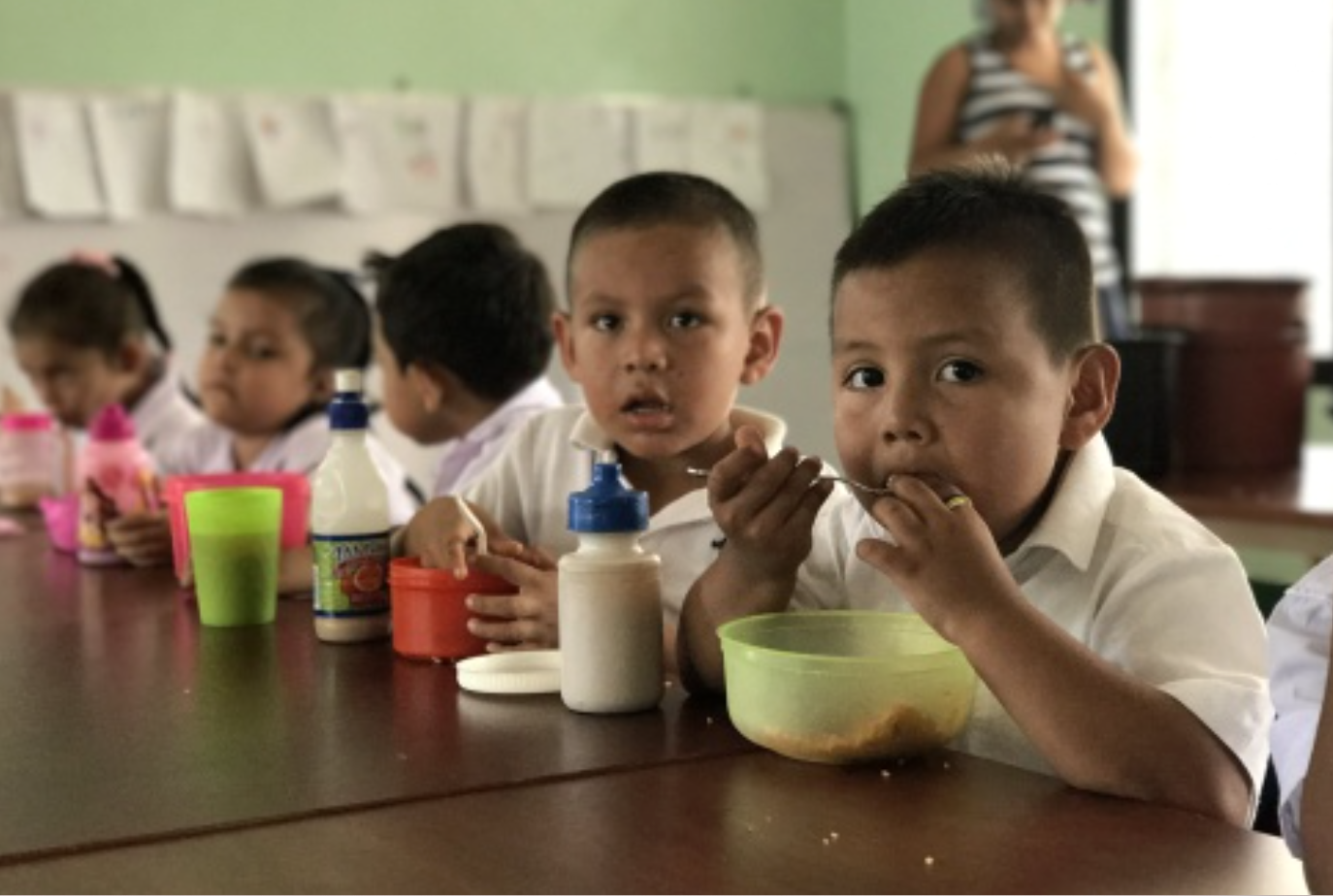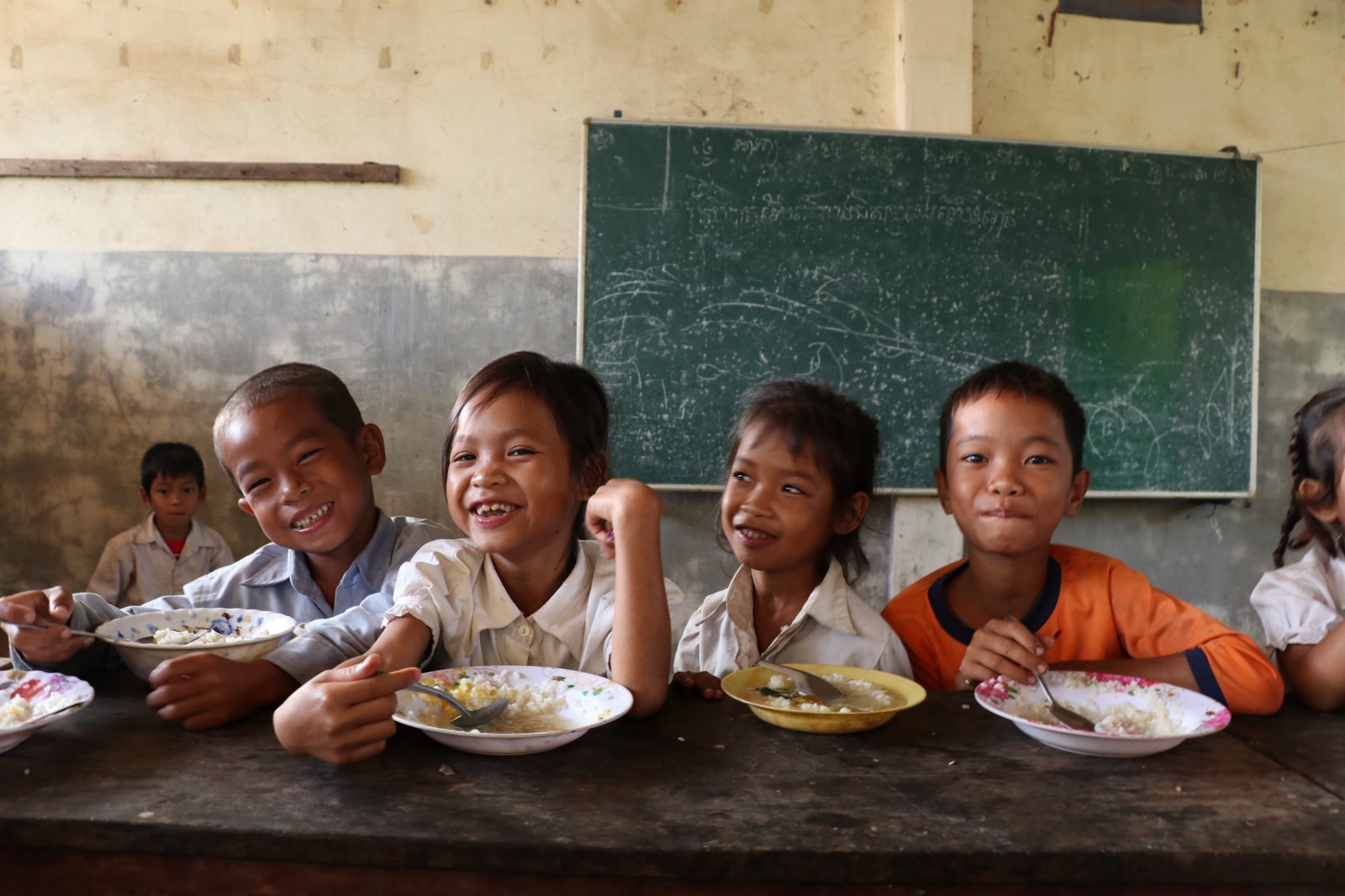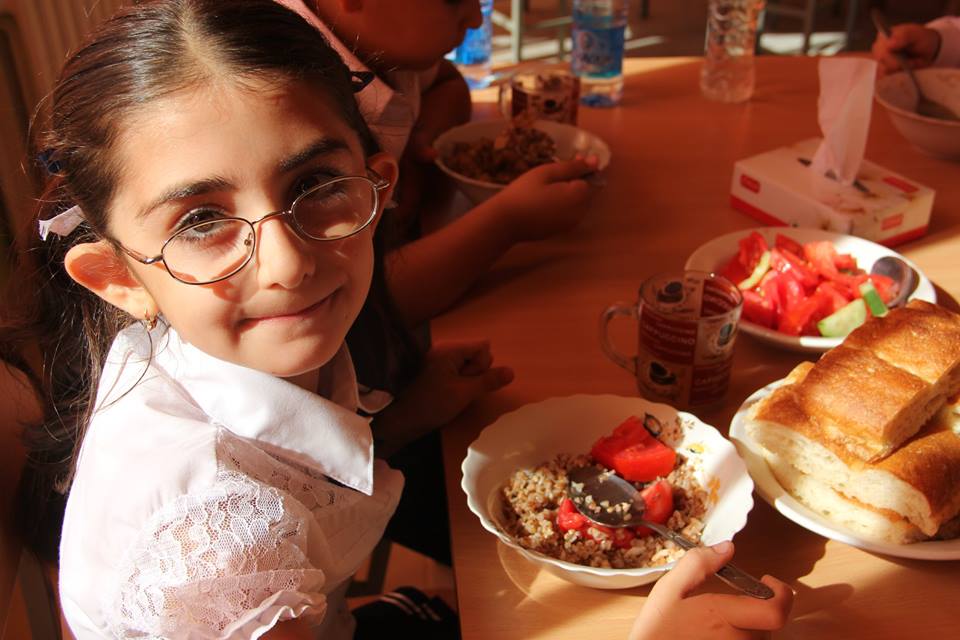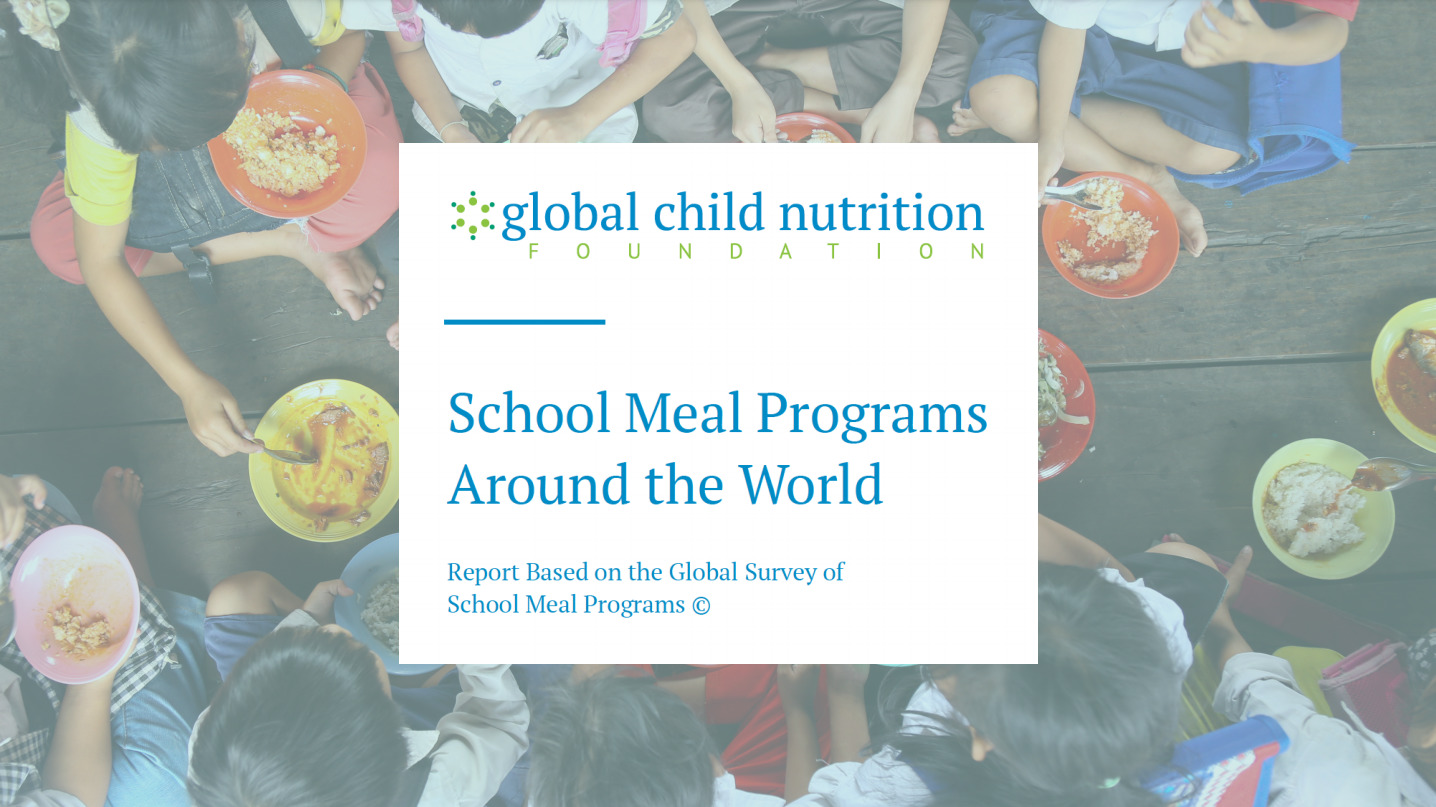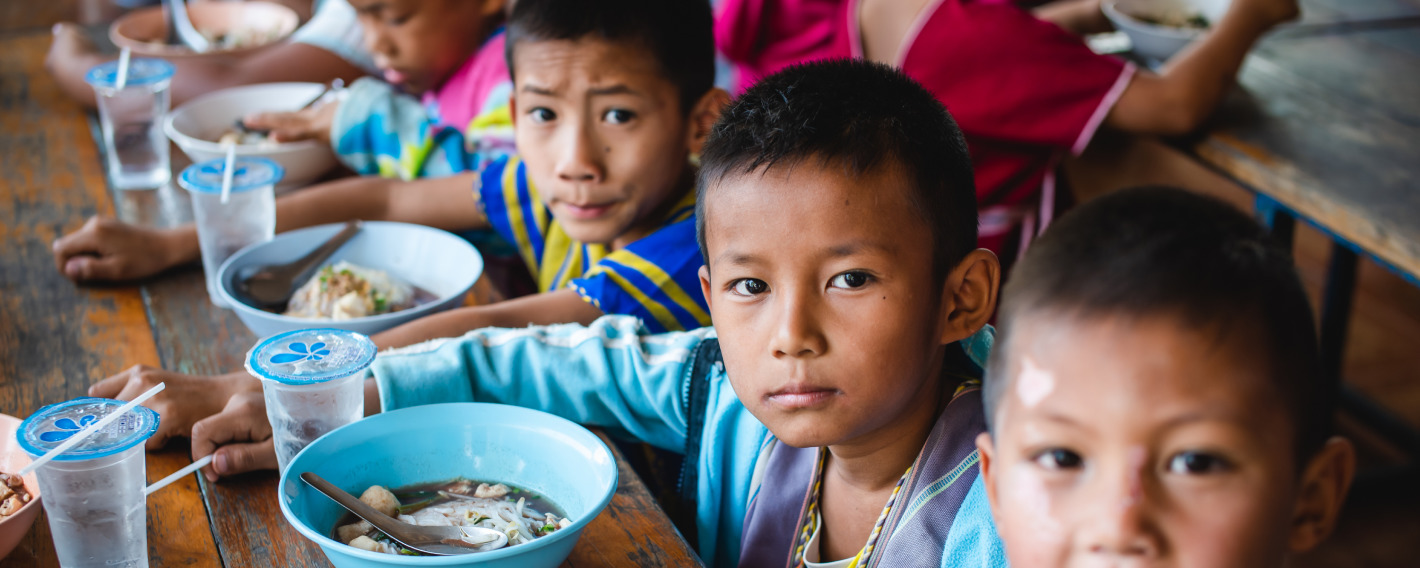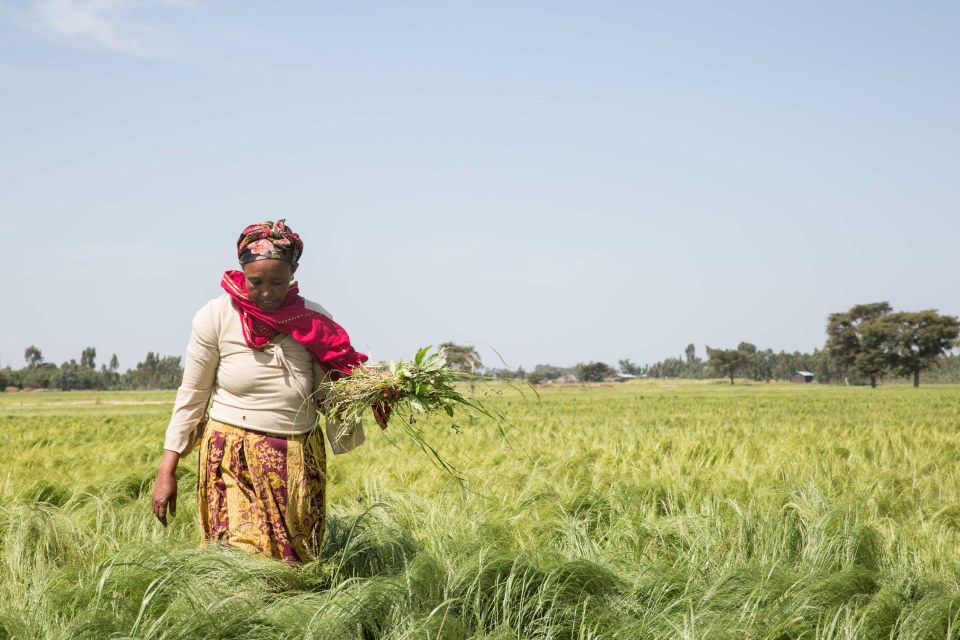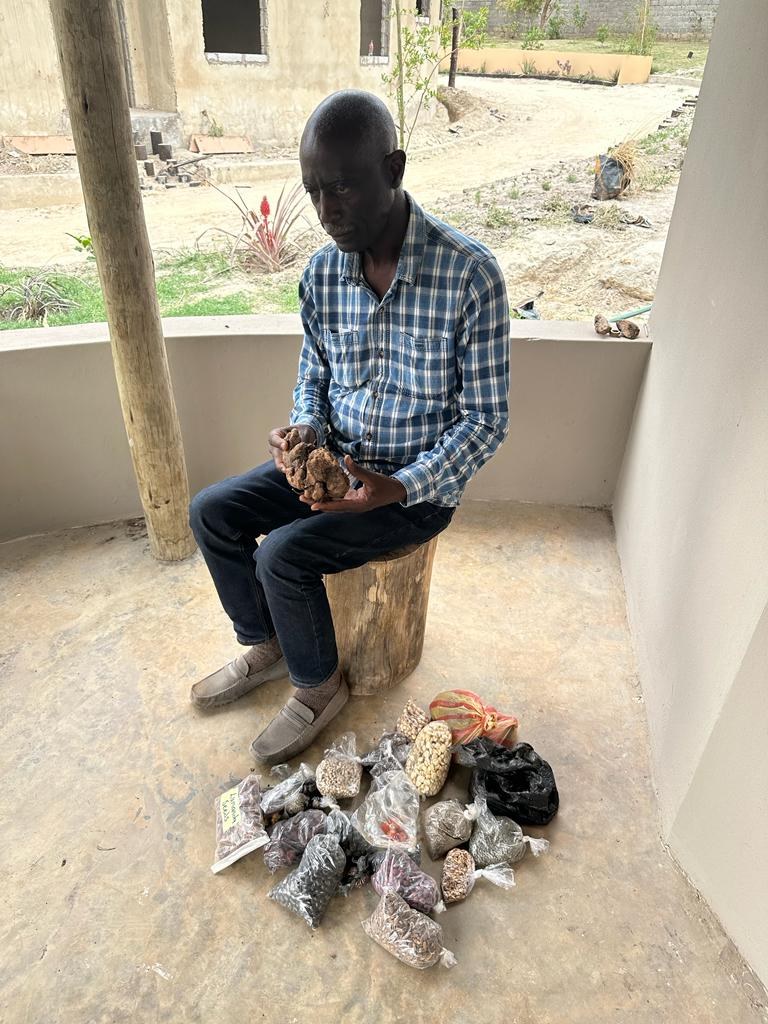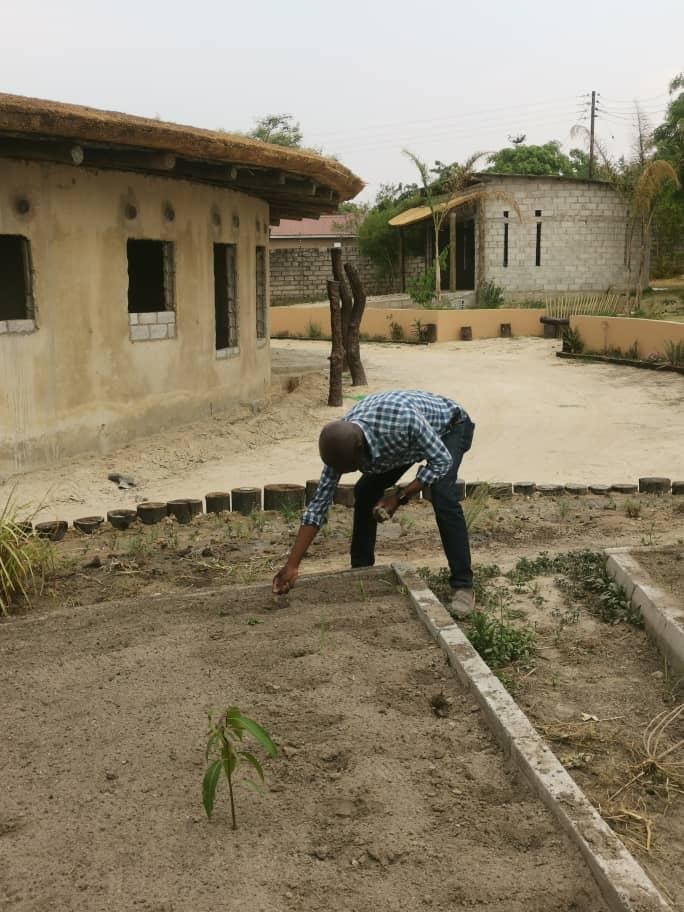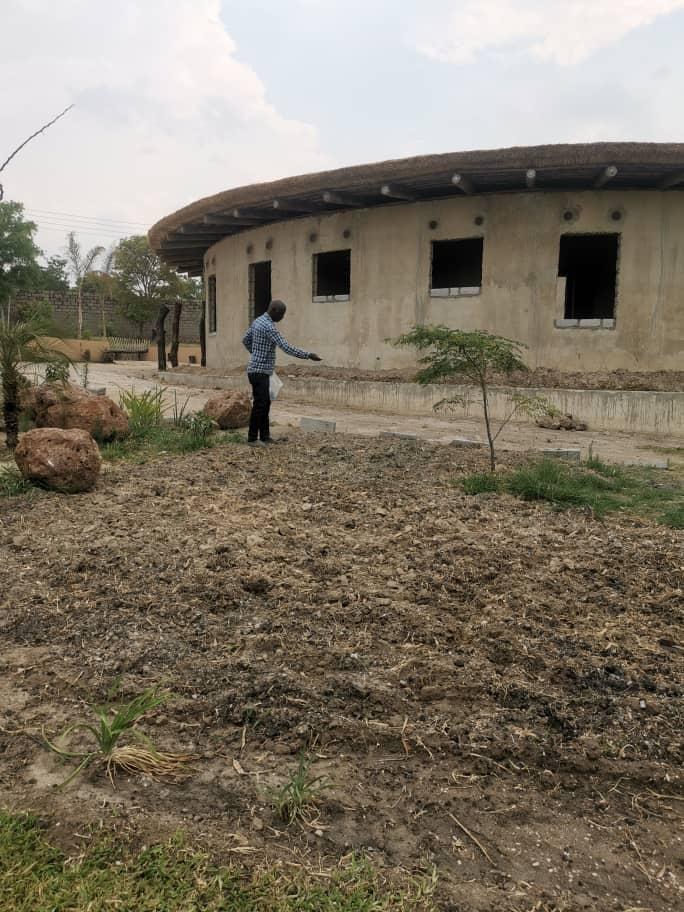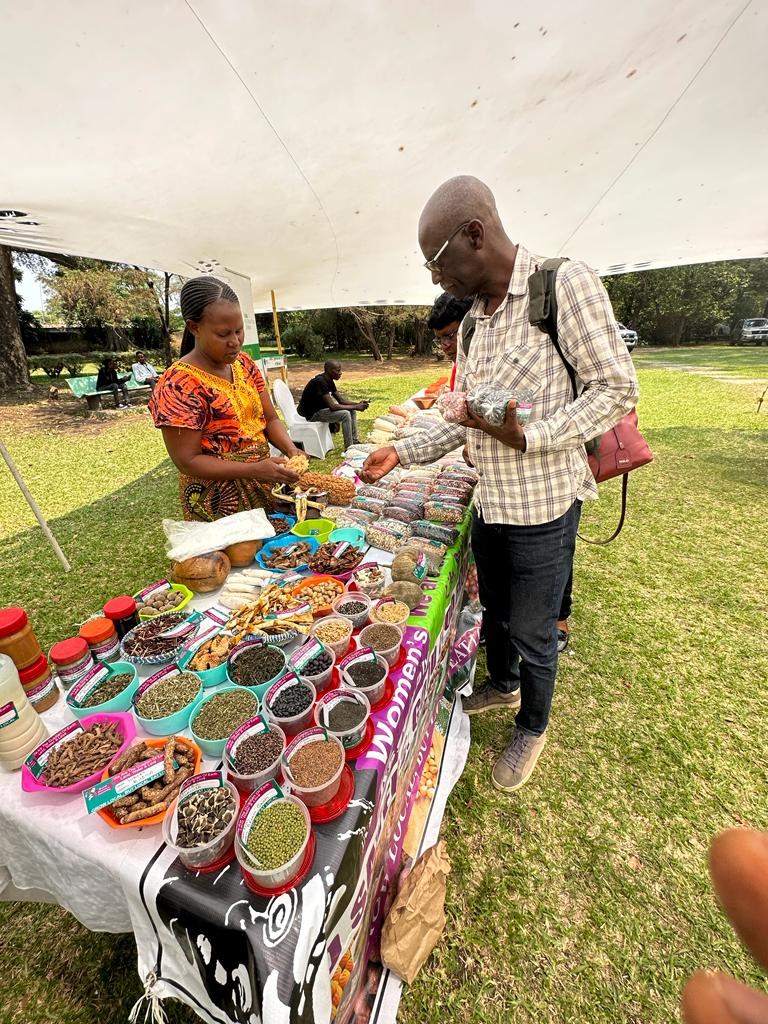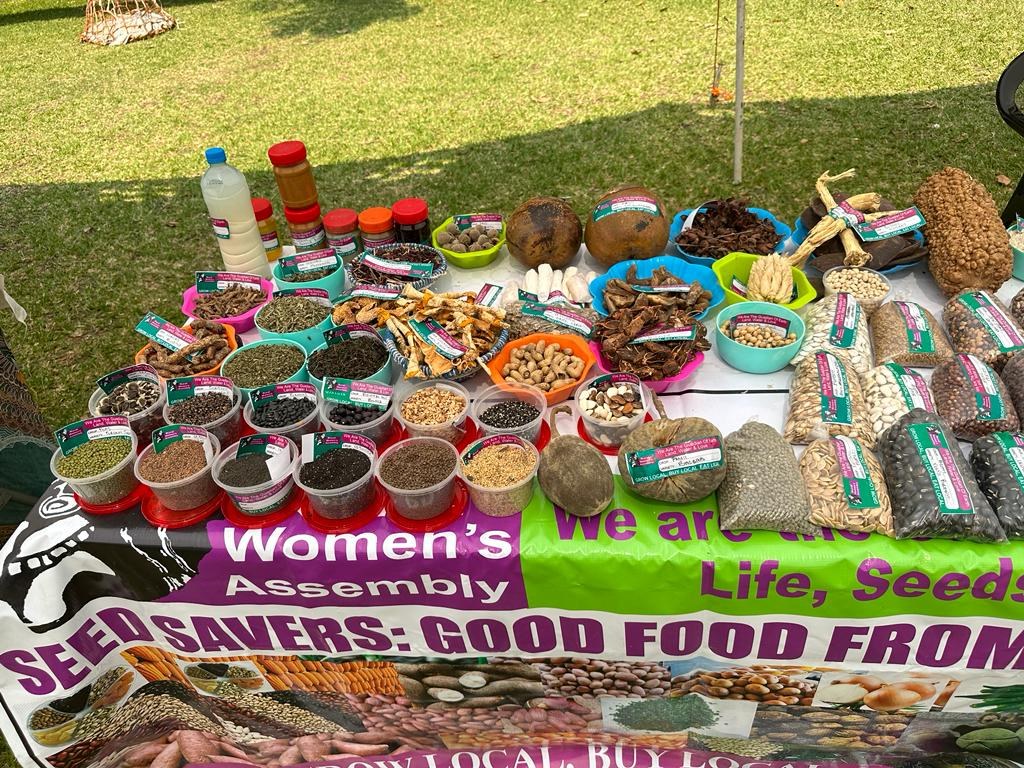Read how GPE is supporting Burundi, the Federated States of Micronesia, Nicaragua, Somalia, and Yemen to ensure students can learn in good conditions through school feeding programs.
Continue readingGCNF Celebrates International School Meals Day
Every year on March 9, school feeding leaders, government officials, and community members come together to celebrate International School Meals Day. This year, Global Child Nutrition Foundation is celebrating by sharing our top 5 favorite facts about the benefits of school meal programs found around the world.
Continue readingAnnouncing Host Country Open Call for 2023 Forum
The Global Child Nutrition Forum is a conference focused on school feeding programs. The four-day event features government exchanges, plenary sessions, technical workshops, and a day trip to see the local school meal programs in action.
We’re looking for our next host country for the 2023 edition of the Global Child Nutrition Forum. Help us bring together school meal program leaders from across the globe, and share your school meal program with the world.
Host Country Frequently Asked Questions
What is the Global Child Nutrition Forum? The Global Child Nutrition Forum is a conference focused on school feeding programs. The four-day event features government exchanges, plenary sessions, technical workshops, and a day trip to see the local school meal programs in action.
Who is the audience? Each year we expect 300-400 participants from all over the world. Government representatives make up the core of the Forum audience. Normally, 35 to 60 countries send formal government delegations. The Forum attracts additional attendance from development partners, UN agencies, academia, and the private sector.
Where will the 2023 Global Child Nutrition Forum be held? The Forum is held in a different country each year. GCNF is currently seeking a host country for 2023. In the past, the Forum has been hosted in Armenia, Benin, Brazil, Cabo Verde, Cambodia, Canada, Ethiopia, Ghana, Kenya, South Africa, Tunisia, and the United States.
When will the 2023 Global Child Nutrition Forum be held? GCNF and the host country will work together to select the exact timing. GCNF anticipates the Forum will be held in October, November, or December of 2023.
What are the benefits to the host country? The Global Child Nutrition Forum offers an opportunity for a country to co-host a well-known international event and showcase their school feeding program(s). It brings tourist resources to the region and garners international attention.
What is GCNF looking for in a host country? Safety first. The host country must be safe for guests from all areas of the world to gather. Second, we seek a host country that with a compelling, strong school feeding program y of global recognition. Alternatively, countries that have a new commitment to roll out or expand their program are also attractive Forum hosts. The host country must have an easily accessible international airport, safe in-country transportation, and a modern and large enough venue space to accommodate 300 to 400 guests. The visa process must be easy and accessible for all guests.
What is the role of the host government? The role of the host government is negotiated each year. Primary responsibilities include ensuring the safety and security of the event, ensuring easy visa processing, presenting a session on the country’s school feeding program, and organizing site visits to schools. The cost of the Forum is shared between GCNF, the host government, and complementary partners. While exact amounts are to be negotiated, the host government should be prepared to make substantial cash or in-kind contributions. The government will be asked to assign an English-speaking focal point to work with GCNF for the planning and organization of the Forum.
How do we express our interest in hosting the Forum? Please express your initial interest in hosting the Forum as soon as possible by emailing info@gcnf.org. Additional information will be provided.
What if I am not from the government, but I am involved with school feeding and want my country to host the Forum? The government is a key host of the Forum. We encourage interested parties to reach out to their government to gain their support for hosting the Forum. Interest in hosting the Forum can come from a partner, but it must accompany support from the government.
What if I represent an organization who wants to partner with GCNF on the Forum? Fantastic! Please reach out to info@gcnf.org with your interest.
Think Your Country Would Be the Perfect Fit?
Please express your initial interest in hosting the Forum as soon as possible by emailing info@gcnf.org. Additional information will be provided.
The 23rd Annual Global Child Nutrition Forum
The 23rd Annual Global Child Nutrition Forum brought together 244 school feeding leaders from around the world for discussion, exchange, and peer-to-peer support essential to the future of school meal programs. Returning to an in-person format for the first time since 2019, Forum participants investigated school meal program linkages between health, nutrition, and agriculture, and dove deep into the effects of compounding crises. They recognized the importance of program sustainability and resilience for the future in the 2022 Forum Communiqué, a call to action produced by the participants. The 2022 Forum Communiqué is available on GCNF’s website in Arabic, English, French, Portuguese, Spanish, and Russian.
The Forum was a joint collaboration of the Global Child Nutrition Foundation (GCNF), the government of the Republic of Benin, Catholic Relief Services, and the UN World Food Programme. Chosen as the host government for the event for its impressive National Integrated School Feeding Program and President Talon’s national budget commitment to school feeding, GCNF hopes other countries will learn from the Republic of Benin’s successful experience. As a member state of the School Meals Coalition, Benin’s hosting of the Forum attests to the country’s commitment to excellence in school feeding. GNCF expresses gratitude to the government and people of Benin for serving as this year’s host and looks forward to continuing their invaluable relationship for many years to come
The Forum kicked off with an Opening Ceremony featuring messages from leaders of GCNF, the government of the Republic of Benin, Catholic Relief Services, and the UN World Food Programme. Throughout the week, participants took part in plenary sessions on exciting topics like “The Triple Burden of Malnutrition” and “Sustainability and Resilience in School Meal Programs”. The Forum offered 9 workshops for participants to gather in small groups and learn more about country-specific experiences. This year, workshop topics covered climate-smart agricultural techniques, engaging private-sector partners, the role of gender in program implementation, and more.
Every year, visits to local schools delight and inspire Forum participants and this year was no exception. Participants split up to visit 6 different local schools, being greeted by students, teachers, and local community members to tour kitchens, pantries, school gardens, canteens, and classrooms. As a result of these visits, paired with an engaging debrief and plenaries throughout the week, participants left the 2022 Forum with new knowledge and professional connections to support their school feeding work. A celebration of the 20th anniversary of the McGovern-Dole Food for Education Program preceded the Closing Ceremony which officially closed the Forum. Participants then enjoyed a cultural animation from the government of Benin, including dinner, cultural performances, and dancing at the Palais des Congrès. GCNF celebrates a successful 23rd Annual Global Child Nutrition Forum and many more to come!
School Meal Programs in Action Around the World
School meal and school feeding programs look different across countries around the world. A new report from GCNF illustrates how.
Continue readingPRESS RELEASE: 2022 School Meal Programs Around the World
Over $35.3 billion were spent on School Meal Programs last year
A new report from the Global Child Nutrition Foundation (GCNF) released today presents a comprehensive view of School Meal Programs Around the World. The report shows that across 139 countries, 330.3 million children received food through school meal programs with an aggregate investment of at least $35.3 billion. Governments are investing their resources in school meal programs: The survey shows that an average of 70% of funding comes from governments.
“The report helps us all to see clearly that while school feeding is extensive, it is highly varied in its form,” said Margaret Grosh, retired Senior Advisor of Social Protection and Jobs at the World Bank, who reviewed the report.
“GCNF is eager to collaborate with governments, researchers and other stakeholders to ensure that the data is put to good use,” said GCNF Executive Director Arlene Mitchell. “The survey data can be used to direct efforts to the areas of greatest need, to support investments based on deeper knowledge, to better advocate for resources and to show progress over time.”
The report demonstrates how these programs are growing and resilient, even in low-income countries and in the face of multiple emergencies, including COVID-19. They responded actively and often with great agility to the COVID-19 crisis, even as pandemic challenges disrupted their work. About 45 countries reported an increase in the number of children fed by at least 5%.
The survey also sheds light on a few positive outcomes from the COVID-19 pandemic. First, the disruption caused by the pandemic brought greater attention to, and appreciation for, the role of school meal programs. While these programs had always filled an important role—nourishing children in schools and facilitating learning—the interruption of these services highlighted to many people their critical importance. Second, the public health crisis brings greater attention to school hygiene, with school systems providing additional handwashing stations, maintaining greater cleanliness on school property and monitoring and enforcing food hygiene in school kitchens.
Rates of government support for school feeding, coverage, and successful integration of school meal programs with agricultural development were highest in Latin America and the Caribbean where school meal programs are estimated to reach 88% of primary school-age children in the region.
The programs create opportunities for farmers, the private sector and job seekers. School cooks are mostly women, especially in lower-income settings. At the same time, it is relatively less common for cooks to receive payment in low-income settings, with just half of the programs in these settings indicating that a majority of their cooks are somehow remunerated.
The 2022 edition of School Meal Programs Around the World presents the results of GCNF’s second Global Survey of School Meal Programs©, conducted from July 2021 through March 2022. Government officials responded to a detailed questionnaire about school meal programs in their countries operating in 2020-2021. Government officials and NGOs from over 30 countries will gather in Benin for the 23rd Annual Global Child Nutrition Forum from 24-27 October to determine how this data can help direct efforts to the areas of greatest need, to support investments based on deeper knowledge, and to better advocate for resources.
The GCNF surveys were funded by multiple donors, most notably the United States Department of Agriculture, the world’s largest donor for international school meal programs through its McGovern-Dole International Food for Education and Child Nutrition Program.
About: GCNF is a non-profit (501c3) organization based in Seattle, Washington that works together with government leaders and a diverse network of partners around the world to ensure sustainable and nutritious school meal programs that give every child the opportunity to learn and thrive.
###
Contact information:
Tori Spivey
Communications Officer
PRESS RELEASE: Data Collection for Second Global Survey of School Meal Programs has Begun
GCNF conducts second round Global
Survey of School Meal Programs, capturing world-wide impact of COVID-19 on
school meals and child nutrition
SEATTLE, WA – School meal programs — in which students are provided with snacks, meals, or other foods in or through schools — are common worldwide. While country-supported school meals are almost universally embraced globally, standardized information about these programs has not been collected and published regularly, until now. The Global Child Nutrition Foundation’s (GCNF) inaugural Global Survey of School Meal Programs © established a unique global database of standardized information on school meal programs, covering all related sectors and activities.
GCNF is now collecting a second round of data for the Global Survey of School Meal Programs ©, capturing the impact of the pandemic for at least one full school year. As schools closed due to the pandemic, from Honduras to the United States to Senegal to Cambodia, many families’ access to school feeding programs that have been important sources of food and nutrition for their children and essential support for households was lost or limited. GCNF’s survey will help to measure and tell the story of the pandemic’s toll on the school food system, while also documenting the resilience and creativity of school meal programs in the face of such dramatic challenges.
“We know that the pandemic has had far-reaching and devastating effects on children, their nutrition, and their education,” said GCNF Executive Director Arlene Mitchell. “This survey will not only provide us with more specific information regarding the impact on school-age children and the programs that support their nutrition, it should also give us insights into which countries were better prepared to deal with this public health crisis and what would assist in planning for future emergencies of this type. We will use the survey results to support peer-to-peer sharing and learning amongst policy makers.”
This 2021 survey goes beyond simply counting how many meals are served or how many children are fed. Through the survey, GCNF will gather updated information regarding:
- The scope of school feeding in each country in the most recently completed school year Government financing of, and involvement in, school feeding
- Nutrition-, education-, and gender-related aspects of school feeding
- Job creation, and agricultural and private sector engagement
- Related health and sanitation topics
- The impact of emergencies, including the COVID-19 Pandemic
“No one’s done this before and I couldn’t, I kind of couldn’t believe it.” said Lawrence Haddad, Executive Director of GAIN and Chair of the UN Food Systems Summit’s Action Track 1, on the extensive data collected in the Global Survey of School Meal Programs. “No one has collected this data before in a systematic manner, given that these programs have been around so long, they have so much potential to do good. And so many countries have them. It seemed amazing to me that there isn’t a database on them.”
GCNF Global Survey Team members have begun reaching out to country governments around the world to begin completing questionnaires. The Global Survey of School Meal Programs Questionnaire may be completed online or in PDF format (with email submission). It is available in PDF format in Arabic, Chinese, English, French, Portuguese, Russian, and Spanish. The Survey Team will serve as virtual guides, to answer questions, and otherwise work with government-appointed Focal Points to complete the survey. Learn more about the Global Survey team.
The 2019 Global Survey drew responses from 103 countries representing 78% of the world’s population. Of these, 85 countries had at least one large-scale school feeding program and provided data for their most recently completed school year. The remaining 18 countries reported that they had no relevant program. Complete survey results and additional information can be found at www.gcnf.org. It is GCNF’s intention to update the Global Survey periodically (e.g., every two to three years) in order to track changes and identify trends in school feeding programs over time.
The Global Child Nutrition Foundation brings together a committed community of governments, civil society, and the private sector to ensure that hunger is not a barrier to learning for any child. Together we advocate for school feeding programs as a powerful investment in every child’s human capital; share best practices and research among our peers; and provide support through forging valuable partnerships and connecting resources to meet the needs of our network members.
###
Contact Information:
Global Child Nutrition Foundation
Rebecca Steelman
206-258-6749
rebecca@gcnf.org
Heidi Kessler
Senior Program & Operations Officer
Heidi@gcnf.org

